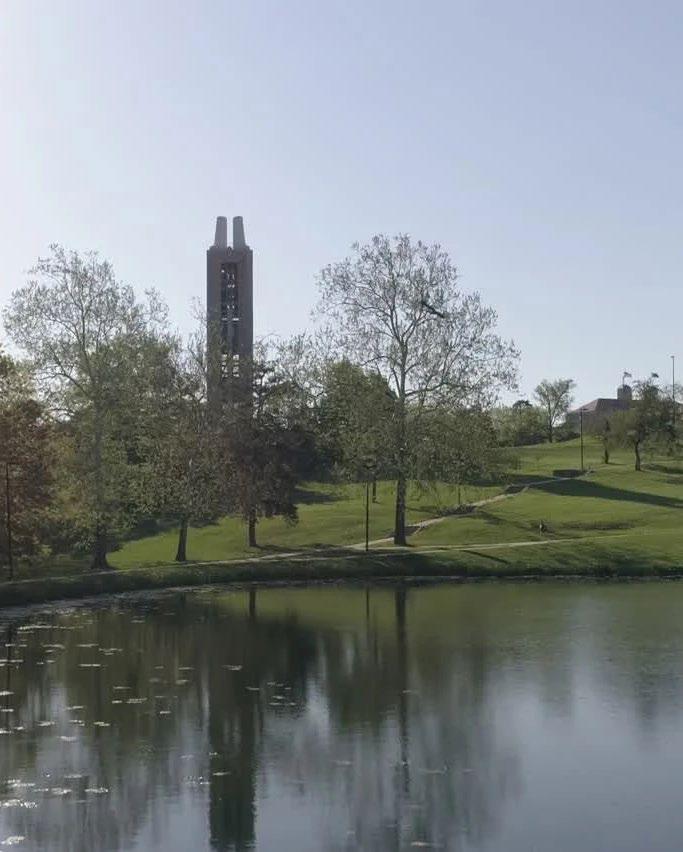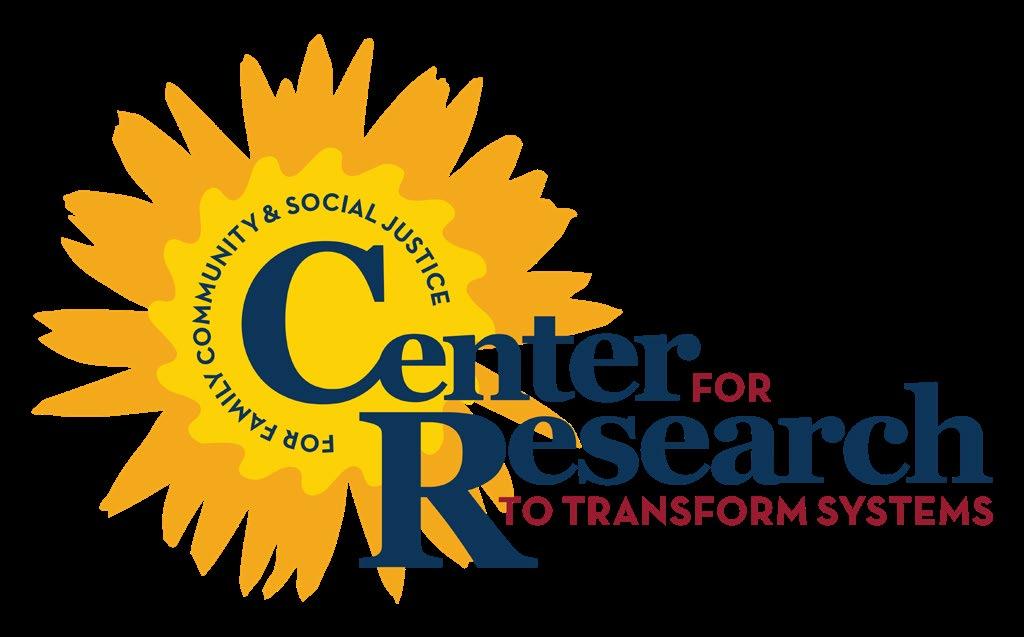
4 minute read
VISION & MISSION
The University of Kansas School of Social Welfare, rooted in the Strengths Perspective, aims to transform lives and social contexts and promote social, economic, and environmental justice in Kansas, the nation and the world. We do so by educating students to practice with integrity and competence; advancing the science and knowledge base of social work through scholarship and research; and participating in communityengaged service.
GUIDING PRINCIPLES & VALUES
Advertisement
Relationship Building:
We engage in relationship building that fosters creativity, collaboration, and mutual learning. Relationship building is essential across practice, scholarship, education and service. We take a strengths approach as we serve our local, state, national, and global communities.
Diversity, Equity & Inclusion:
We embrace the inherent worth of all people. By taking the position of cultural humility and applying the lens of intersectionality, we seek to develop and promote modes of anti-oppressive social work and dismantle structures of exclusion.
Practice with Integrity:
We demonstrate our integrity and trustworthiness as scholars, educators, practitioners, and community members by promoting social work values, ethical practice, and the process of critical reflection.
Multisystem Competency:
We recognize that social, economic, and environmental injustices are the root causes of inequities and multiple strategies are necessary to address these. Our work integrates micro/macro social work and builds collaboration across systems and disciplines to create multi-level change.
Critical Perspective:
We engage in deliberate and continuing examination of social conditions and solutions. We use critical inquiry to analyze and challenge existing structures and systems in order to advance the field and promote social, economic, and environmental justice.
Empirically Informed Social Work:
We rigorously advance empirical research that impacts the social work knowledge base. By translating and applying evidence, we continually transform practice and policy across multiple systems.
VISION
143 Research Community Partners
72 Scholarly Research Presentations
39 Research Products
41 Scholarly Publications

>$8M New Funding Awarded in 2022 fiscal year
12 MSW Scholars
50 Students working on research projects
SCHOLARSHIP HIGHLIGHT: CHILD & FAMILY WELL-BEING
Featured Publications: 8-9
Featured Center: 8
Featured Presentations: 9-11
Featured Products: 12
Featured Research Story: 13-15
Featured Publications
Banda, L., Carlson, J., Diaz, A., Akin, B.A., Davis, L., Rose, J., & Yellowhammer, T. (2022). Barriers to services at the intersection of child maltreatment and domestic violence: A multi-perspective analysis of parents with lived experience and professionals. Journal of Family Violence. https://doi.org/10.1007/ s10896-022-00457-8 [Open Access]
Barton, J., & Akin, B.A. (2022). Implementation drivers as practical measures of data-driven decision-making for early childhood programs: An initial validation study. Global Implementation Research and Applications, 2, 141–152 https://doi.org/10.1007/s43477-022-00044-5 [Open Access]
Clark, S.L., Akin, B.A., McCall, S., Paceley, M. S., Byers, K., & Gomez, M. (2022). “Youth are not something to check off your to do list”: Poetic inquiry into the symbols youth, parents, and professionals use to reimagine supports for youth in foster care. Child & Family Social Work, 1-11. https://doi. org/10.1111/cfs.12986
Kepple, N. J., Wolf, J.P., & Freisthler, B. (2022). Substance use disorder & child maltreatment: Providing a framework for understanding the relationship using current evidence. In Krugman, R. & Korbin, J. (Eds.), Handbook of Child Maltreatment (2nd Ed). New York: Springer.
Riquino, M. R., Reese, S. E., Molloy, J. K., Nguyen, V. L., Greenwood, E., LaFountain, O., Cavasos, A., Paceley, M., S., Jen. S., & McGeough, B. (2022). “What do you think needs to be done to address selfharm?”: Centering the perspectives of youth who engage in self-harm through found poetry. Qualitative Inquiry, 0(0). https://doi.org/10.1177/10778004221124629
Featured Center
The Center for Research to Transform Systems for Family, Community, & Social Justice (CRTS) works to bring about major change to the child welfare system, envisioning new approaches, focused on family well-being, where systems listen to the needs and aspirations of communities and work collaboratively to create a proactive, responsive, and equitable network of services and supports. CRTS, which launched in fall 2022, engages in projects, initiatives and research, including implementing and evaluating innovative approaches to service children, families, and their communities.
Center for Research to Transform Systems for Family, Community & Social Justice Website

Email: crts@ku.edu
Co-Directors:
Becci Akin, Jared Barton, Kaela Byers
One way CRTS partners with the community and local organizations is through the Kansas Racial Equity Collaborative (REC). REC will host a mini-symposium on May 3 as well as another Racial Equity Collaborative Symposium this fall, following the success of the inaugural event last year. Check the Racial Equity Collaborative website for more details and updates.
Sattler, P.L., Paceley, M. S., Byers, K., Mulkey, Z., & Mendenhall, A. (2022). Lost in translation: Bilingual parent coaches’ experiences implementing an un-adapted early childhood intervention with non-English speakers in two states. Global Implementation Research and Applications, 2, 12-21. https://doi. org/10.1007/s43477-022-00037-4 [Open Access]
Featured Presentations
Akin, B. A., Clark, S. L., Byers, K., McCall, S., Gomez, H., & Paceley, M. S. (2022, Jan. 15). “That’s nothing if we never let you say how it feels to be already drenched:” Identifying key themes for supporting youth in foster care through poetic inquiry. 26th Annual Conference of the Society for Social Work and Research, Social Work Science for Racial, Social, and Political Justice, Washington, DC.
Barton, J., Byers, K., & Akin, B.A. (2022, Nov. 12). Conditions for change in child welfare: How collective impact frameworks inform Family First implementations. Council on Social Work Education 68th Annual Program Meeting “Leading Critical Conversations: Human Rights are Global Rights,” Anaheim, CA.
Barton, J., Byers, K., Akin, B. A., & Alford, D. (2022, Jan. 15). Key conditions for change in child welfare: Applying a collective impact framework to inform Family First prevention services implementations. 26th Annual Conference of the Society for Social Work and Research, Social Work Science for Racial, Social, and Political Justice, Washington, DC.
Barton, J., Byers, K., Akin, B. A., Hermesch, E., & Felzke, E. (2022, Oct. 4). “I ran to make a point, and they didn’t listen to me.”: Youth absences from foster care [Virtual]. 2022 Kempe Center International Virtual Conference: A Call to Action to Change Child Welfare, Denver, CO.
Brook, J. (2022, March 11). Parental substance abuse and public child welfare: What the research is telling us. National Association of Social Workers, Kansas Chapter, Annual Meeting.
Brook, J., Liming, K. W., Byers, K. & Coles, C. (2022, Jan. 14). Before and after: An examination of the impact of parenting program participation on parental attitudes among substance abuse affected, child welfare involved families. Society for Social Work Research 26th Annual Conference “Social Work Science for Racial, Social, and Political Justice,” Washington, DC.
Brook, J., Liming, K. W., Byers, K. & Coles, C. (2022, Jan. 14). Examining the substance use patterns and treatment experiences of foster care involved, substance use affected families. Society for Social Work Research 26th Annual Conference “Social Work Science for Racial, Social, and Political Justice,” Washington, DC.
Brook, J., Mazzetti, S., & Liming, K. W. (2022, March 11). Utilizing publicly available data to inform prevention planning for adults and children Involved in public child welfare. International Public Health Conference, virtual.
Brown, A., Alford, D., Byers, K., & Akin, B.A. (2022, Jan 14). The adoption tracking tool: Creating structures to improve cross-sector collaboration. Society for Social Work Research 26th Annual Conference “Social Work Science for Racial, Social, and Political Justice,” Washington, DC.







